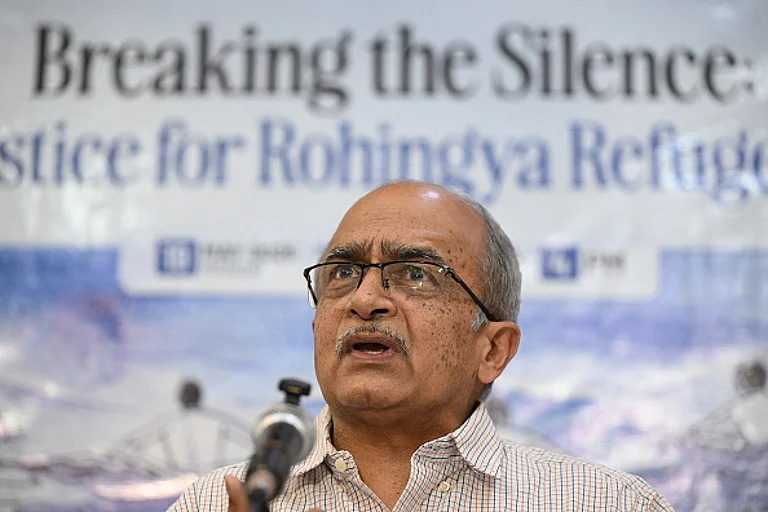Brigadier General Md Nazim-ud-Daula, Director of the Military Operations Directorate for the Bangladesh Army, described the forced return of undocumented Bangladeshi nationals by Indian authorities, referred to as “push-ins”, as “unacceptable,” and said the army was prepared to intervene if instructed by the government.
Bangladesh Army Warns Against India's 'Push-In' Deportation Practices
Brigadier General Md Nazim-ud-Daula described the forced return of undocumented Bangladeshi nationals by Indian authorities, referred to as “push-ins”, as “unacceptable,” and said the army was prepared to intervene if instructed by the government
“Border Guard Bangladesh (BGB) handles the issue effectively. However, the army is prepared to step in if needed or upon government instruction. Regardless, the situation is not something we consider acceptable,” he said to The Dhaka Tribune.
His remarks follow a recent uptick in the detention and handover of undocumented Bangladeshi migrants by Indian authorities. According to Indian officials cited in The Hindu, 295 individuals were sent back in 2024, with 100 handed over by April 30. Jaipur Police detained over 500 Rohingya and Bangladeshi migrants in January, and over 1,000 were picked up in Ahmedabad and Surat in April. In a separate incident, Kolkata Police arrested a Bangladeshi national in connection with a hit-and-run case on May 25.
Bangladesh has criticised these expulsions as bypassing diplomatic norms. Home Affairs Adviser Lieutenant General Md Jahangir Alam Chowdhury (Retd) said on May 18 that all repatriations should take place “through proper channels.” He added that Indian nationals staying illegally in Bangladesh would also be returned using diplomatic processes.
“Bangladesh does not engage in ‘push-ins’ like India but believes in resolving issues through diplomacy,” Chowdhury said.
According to Nazim-ud-Daula, diplomatic communication is ongoing. “The government and the Bangladesh Army are working in close coordination and complementing each other. We follow the government’s directives. There is no reason to interpret it otherwise,” he said, amid reports suggesting friction between the army and the Muhammad Yunus-led caretaker government.
“Sometimes, even in families, there can be misunderstandings. Similarly, different stakeholders may express varying opinions in the course of running a country. But that does not mean there’s division or conflict. Nothing of that sort has happened,” he said to The Daily Star.
The dispute unfolds along the 4,096.7-km India–Bangladesh border, large stretches of which remain porous despite increased fencing. As of February, India’s Ministry of Home Affairs reported that 3,232 km of the border had been fenced. The remaining terrain, marked by rivers, enclaves, and dense settlements, remains vulnerable to crossings.
The BGB has also resisted Indian attempts to erect barbed-wire fencing in certain areas, citing a 1975 bilateral agreement. The last notable standoff between BGB and India’s Border Security Force (BSF) occurred in January 2024.
While India estimates there are around 20 million undocumented Bangladeshi immigrants living within its territory (based on 2016 figures), the process of deportation remains legally and logistically complex. The Supreme Court of India, in February this year, directed the Assam government to expedite deportations of individuals declared as foreigners, but implementation has proven difficult on the ground.
Bangladesh’s Ministry of Foreign Affairs has formally raised the matter with India. Foreign Affairs Adviser Touhid Hossain and National Security Adviser Khalilur Rahman are currently engaged in diplomatic communication, according to Chowdhury.

